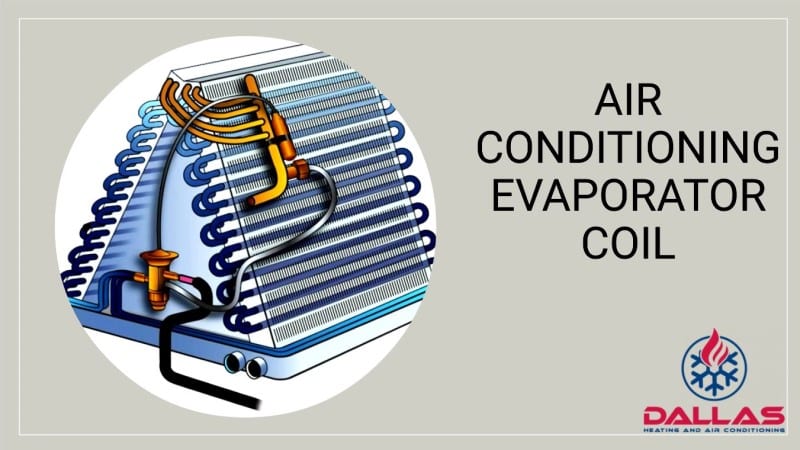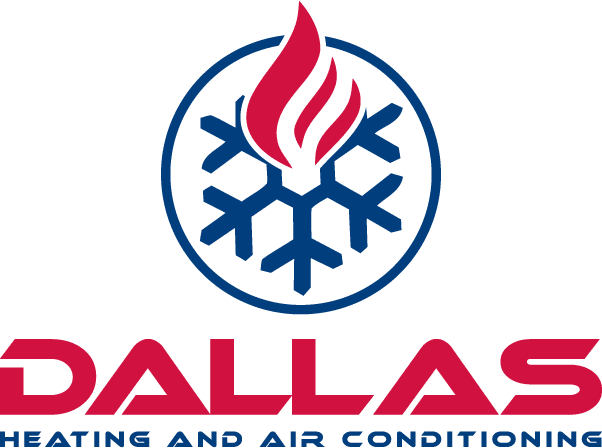AC Repairs - Troubleshooting Clogged Evaporator Coils

This HVAC article brought to you by Dallas Heating and Air Conditioning as part of our air conditioning troubleshooting series designed for homeowners to understand how their AC system works, what can go wrong, and how it can be fixed.
The efficient operation of an air conditioning system is dependent on a number of factors, one of the most important being evaporator coils. When clogged, these coils can cause a variety of issues that must be addressed in order to ensure proper functioning. This article will discuss troubleshooting techniques for addressing clogged evaporator coils, as well as their potential causes and solutions.
Evaporator coils play an integral role in the cooling process within an air conditioning system. As air passes over the coil, the refrigerant absorbs heat from the air and transfers it outside the building, allowing for cooling within the unit. However, when this coil becomes clogged with dirt and debris, it can impede its ability to absorb heat efficiently and thus reduce its performance capacity.
In order to maintain proper functioning within an air conditioning system, it is essential to address any issues related to clogged evaporator coils in a timely manner. The following sections will discuss common causes of obstructed evaporator coils as well as troubleshooting techniques for restoring their performance capacity.
What Are Evaporator Coils?
A split-system central air conditioner includes two units: an indoor unit, which typically has a furnace and evaporator coil or fan coil, and an outdoor unit, which is often referred to as the air conditioning unit. Both units contain a coil that is critical to the air conditioning process. Inside the home, the evaporator coil, also known as the cooling coil, is located on the air intake side of the fan coil or the outlet side of the furnace. Its main purpose is to extract heat from indoor air, allowing the blower fan to circulate cool, refreshing air throughout the home.
The condenser coil, located in the outdoor unit, releases the heat that's been captured outside. Most evaporator and condenser coils are made of copper tubing with thin, aluminum fins. Although there are other coil designs and compositions, such as all-aluminum or spine fin coils, the airflow across the coil is essential for transferring heating energy in and out of the home.
What is an evaporator coil and why is it so important in air conditioning systems? Evaporator coils are a key component of the air conditioning system, which helps to circulate cool air into a space. The coil works by drawing hot air from the outside and transferring it to the inside through a refrigerant. As the refrigerant passes through the coils, heat is released and cold air is produced. This process is known as evaporative cooling. The evaporator coil helps to keep indoor temperatures comfortable while providing efficient energy usage.
The importance of evaporator coils lies in their ability to regulate air temperature indoors, while also helping reduce energy costs by providing efficient cooling. Without them, homes and businesses would not be able to enjoy comfortable temperatures or save on energy bills. Therefore, it is essential that these coils remain in proper working order at all times.
Signs Of Clogged Coils
Clogged evaporator coils can be difficult to identify as the symptoms are often subtle. It is important to be aware of the signs that an air conditioning system may have clogged coils in order to take action before more serious damage can occur. Generally, customers will notice a decrease in their air conditioner’s performance or efficiency when the evaporator coils become blocked. This could manifest itself through reduced cooling power, increased energy bills, musty odors, or excessive condensation on windows and walls. Additionally, the AC unit may make louder noises than usual or be struggling to keep up with demand. These signs should not be ignored as they indicate that there is an issue with the evaporator coils that needs to be addressed promptly. The next section will discuss potential causes of clogged evaporator coils.
Causes Of Clogged Coils
Evaporator coils can become clogged due to a number of different causes, like a swarm of bees amassing in the air conditioning unit. These coils are responsible for dissipating heat, which is why they’re so important to the functioning of an AC system. When they become blocked, it can cause all sorts of problems.
The primary causes of clogged evaporator coils include:
- Dust and dirt build-up: Dust and dirt that accumulates in the system over time can hinder airflow and result in clogged evaporator coils.
- Inadequate cleaning and maintenance: If the unit isn’t regularly cleaned and maintained, dirt and debris will start to accumulate in the evaporator coils.
- Poor installation: A poor installation job can lead to a less efficient system, which means more dust and debris will get inside the coil.
The consequences of clogged evaporator coils are far-reaching as they can cause everything from decreased energy efficiency to higher utility bills. Regular cleaning and maintenance is key to avoiding this problem, as well as proper installation when replacing an old system or installing a new one. With these precautions taken, you can prevent your AC system from suffering due to clogged evaporator coils. As such, safety precautions should be observed when troubleshooting an AC with clogged evaporator coils.
Safety Precautions
It is essential to take safety precautions when troubleshooting ac systems. Protective gear such as safety glasses, gloves, and a face mask should be worn to protect against debris and other particles that may be present. Also, remove any jewelry that could potentially get caught in the system. Furthermore, it is important to unplug the power source before conducting any maintenance on the unit. Additionally, it is advisable to turn off all water supplies to avoid any potential flooding.
When cleaning or servicing the evaporator coils, ensure that no liquid comes into contact with electrical components. To prevent this, use only approved cleaning solutions or de-greaser products and follow label instructions carefully. Additionally, it is best practice to clean coils with a soft brush or vacuum attachment and not sharp objects or spray cleaners directly onto live circuits. With these safety measures in place, one can proceed confidently with coil cleaning operations.
How To Clean The Coils
The evaporator coils of an air conditioning system are essential for cooling the air, but when clogged, these components can cause a variety of issues. Cleaning the coils is necessary to ensure proper functioning and extend the life of the system. Here's how:
- Turn off the power breakers for the AC system before starting any work.
- Remove all panels that may be blocking access to the evaporator coils.
- Vacuum dirt and debris off of each coil with a soft-bristled brush attachment.
- Use a coil cleaning solution or mild detergent to dissolve dirt and grime further.
- Rinse off each coil with a wet cloth or towel until clean.
Cleaning the coils is an important step in resolving AC issues due to clogs, but there are times when it pays to call in a professional. Knowing when that time has come is key in getting your system back up and running efficiently.
When To Call A Professional
If the clogged evaporator coils cannot be resolved with the steps outlined above, then it is time to call a professional. Hiring a professional can help ensure that the problem is identified and fixed correctly. A professional will have the necessary tools and experience to diagnose and repair any issues with the evaporator coils. Additionally, they may be able to provide advice on how to prevent similar problems from occurring in the future.
It is important to remember that if the clogged evaporator coils are not properly addressed, then larger problems can arise. This could include costly repairs or even replacement of parts or systems. By hiring a professional, these risks can be minimized and any further damage avoided.
Maintenance Tips For Evaporator Coils
Maintaining evaporator coils is important for ensuring their proper functioning and preventing the need for costly repairs. Regular cleaning and inspection of evaporator coils will help maximize their performance and extend their lifespan. Here are a few maintenance tips that can be used to ensure the coils stay in good condition:
- Clean the coils regularly with a brush or vacuum cleaner. This will remove any dirt, dust, pollen, or other debris that can accumulate on the surface of the coil and reduce its efficiency.
- Check the condensate drain line periodically to make sure it is not blocked or clogged with debris. A clogged drain line can cause water to back up into the system, leading to inefficient operation and potential damage to other components.
- Inspect the insulation around the evaporator coils to ensure it is in good condition and free of any cracks or holes that could allow air leakage inside the system.
- Have an HVAC technician inspect the evaporator coil annually to look for any signs of wear or damage that may not be visible during regular maintenance checks.
Following these maintenance tips can help keep your evaporator coil in top working condition and prevent future problems from arising. Regular cleaning, inspection, and professional service are all essential components of maintaining your HVAC system properly.
Conclusion
Clogged evaporator coils can be a nuisance to deal with, but having the proper knowledge and taking the necessary safety precautions can make the process easier. Keeping up with regular maintenance of evaporator coils can also reduce the chances of clogging, saving time, money and energy.
Despite all of this information, there are still instances where a professional may need to be called in order to properly diagnose and fix any potential issues. Even though it may seem like an unnecessary expense at times, this will prevent bigger issues from arising down the road that could cost even more money to fix.
Irony aside, clogged evaporator coils are something that should not be taken lightly as they can lead to major problems if left untreated. Knowing how to identify signs of clogs and how to properly maintain them is key in preventing future headaches caused by these pesky little coils.
If you enjoyed this article, check out these other articles about troubleshooting:
Troubleshooting A Bad Condenser Fan Motor
AC Repairs - Troubleshooting Blocked Condensate Drain


